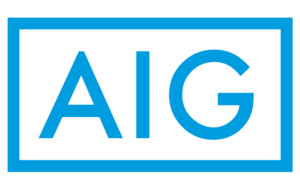
Tort Reform and Rates
“So much political capital was spent on getting tort reform. They better not come to our office and ask a ridiculous rate increase.”
— Georgia Insurance Commissioner John King predicting property/casualty insurance rates will drop 3% to 5% in the next year after lawmakers approved significant tort reform measures. He also seemed to warn insurance companies about filing for major increases. King’s comments came after Georgia Gov. Brian Kemp signed into law two bills that aim to reduce what has been called excessive litigation and seek to restrict financing of lawsuits by third-party lenders. King said his office is recruiting new insurance carriers and is willing to offer unnamed incentives to attract carriers to the state.

Tariff Tremors
“We have already had to turn around and refuse shipments because customers cannot afford the tariffs, delaying our ability to build, which will eventually lead to job losses.”
— Texas electronics manufacturing executive discussing the impacts and uncertainties surrounding the latest round of tariffs. Texas accounts for about 10% of total US manufacturing. A general gauge of business activity plunged to its worst reading since May 2020 based on recent survey responses from 87 Texas manufacturers, revealed by the Federal Reserve Bank of Dallas. While responses indicated modest current growth in production, company outlooks fell to a post-pandemic low as respondents pointed to frazzled supply lines and difficulty in forecasting.

Barring Gas Bans
“Allowing these gas vehicle bans (something never attempted before in the United States) to proceed will increase automobile prices and reduce vehicle choices for consumers across the country at precisely the same time they are adjusting to the marketplace shock of 25% tariffs on imported vehicles and auto parts.”
— The Alliance for Automotive Innovation, which represents General Motors, Toyota, Volkswagen, Hyundai and other major automakers, in a letter stating car companies could soon be “forced to substantially reduce the number of overall vehicles for sale to inflate their proportion of electric vehicles sales.” Major automakers want Congress to bar California’s landmark plan to end the sale of gasoline-only vehicles by 2035.

BRIC Hits Communities
“This is a generational set of infrastructure projects that would set us up for the next hundred years and it just–poof–went away.”
— Erin Burris, assistant town manager for Mount Pleasant, North Carolina, commenting on the Federal Emergency Management Agency’s (FEMA) elimination of the Building Resilient Infrastructure and Communities (BRIC) program. The change revoked upwards of $3.6 billion in funding earmarked for communities like Mount Pleasant. Officials across the country say long-standing plans have been upended by the move.

Agentic AI Ecosystem
“Enterprises are having a lot of success deploying [AI] in the periphery. That’s common across all companies. All companies need customer service. They need internal productivity for their developers. That’s the same whether you’re in insurance or some other area. So, [there’s] a lot of success there, and a lot of aspiration to make progress in the core of what they do.”
–Anthropic CEO Dario Amodei on the AI company’s partnership with AIG, which is focusing on using AI for core activities, and plans on creating an end-to-end AI process in an agentic AI ecosystem.

Canadian Snowbirds Take Flight
“Now with the political issue, the cost of maintaining a place here in Florida and the insurance, a lot of them decided to sell and go.”
–Ken O’Brian, owner of Southwest Coast Realty in Naples, Florida, which has specialized in helping Canadians purchase properties in Florida for about 20 years. Real estate agents say they are seeing more Canadians cashing out, further softening property prices in warm-weather states. The “snowbirds” cite political uncertainty, the exchange rate and concern about whether Floridians would still welcome Canadians in the current climate.
Was this article valuable?
Here are more articles you may enjoy.


 Insurify Starts App With ChatGPT to Allow Consumers to Shop for Insurance
Insurify Starts App With ChatGPT to Allow Consumers to Shop for Insurance  Lemonade Books Q4 Net Loss of $21.7M as Customer Count Grows
Lemonade Books Q4 Net Loss of $21.7M as Customer Count Grows  CFC Owners Said to Tap Banks for Sale, IPO of £5 Billion Insurer
CFC Owners Said to Tap Banks for Sale, IPO of £5 Billion Insurer  Experian Launches Insurance Marketplace App on ChatGPT
Experian Launches Insurance Marketplace App on ChatGPT 


